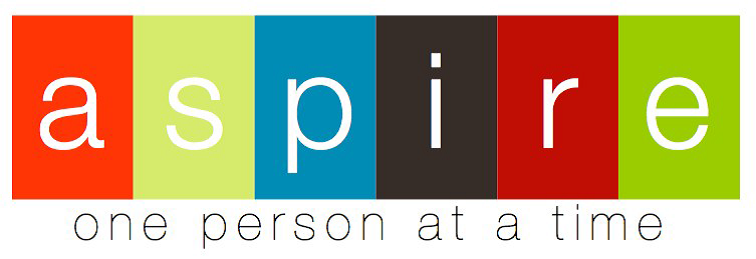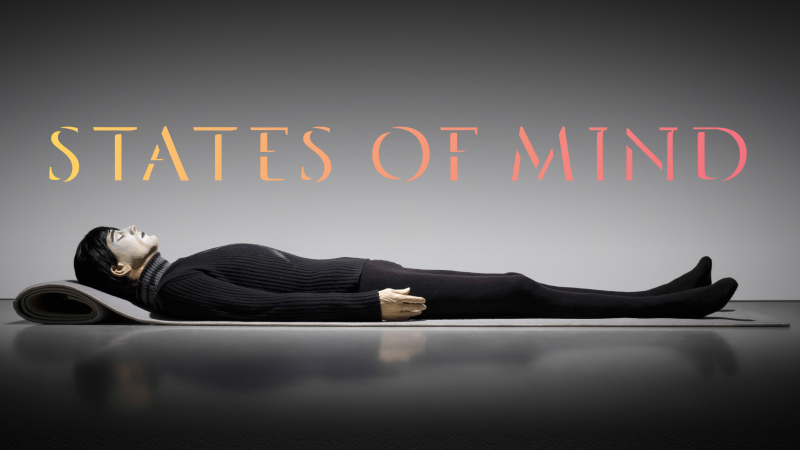Fire Nation,
Let me start with the my blogging praying:
Dear Almighty in Blogosphere. I am the Commander of these powerful words. Give me the Power 7 Strengths to be the King of all my stories.I am the writer, I will finish all of the stories I Started with your blogging blessings. Blogmen.
It seems funny, but follow the words piece by piece to get the kick off power to move. In this article 25 things will be dropped to aspire writers all over the world. Straight to the point, no long stories at all.
Seen a lot of people giving advice to so-called “aspiring” writers these days, so, I figured what the hell… Might as well throw my nuggets of wisdom into the stew. See if any of this tastes right to you.
1. No More Aspiring, Dingbats
Here are the two states in which you may exist: person who writes, or person who does not. If you write: you are a writer. If you do not write: you are not. Aspiring is a meaningless null state that romanticizes Not Writing. It’s as ludicrous as saying, “I aspire to pick up that piece of paper that fell on the floor.” Either pick it up or don’t. I don’t want to hear about how your diaper’s full. Take it off or stop talking about it. These days paper is digital.
2. Kick Your Lowest Common Denominator In The Kidneys or Stomach
You can aspire to be a lot of other things within the writing realm, and that’s okay. You can aspire to be a published author. Or a bestselling author. Or a professional freelance writer. Or an author who plagiarizes his memoir and gets struck with a wooden mallet wielded by Oprah live on prime time television. You should aspire to be a better writer. We all should. Nobody is at the top of his game. We can all climb higher. Look for the SKY !
3. Aspiring Writers, Far As The Eye Can See
Nobody respects writers, yet everybody wants to be one (probably because everybody wants to be one). Point is, you want to be a writer? Good for you. So does that guy. And that girl. And him. And her. And that old dude. And that young broad. And your neighbor. And your mailman. And that chihuahua. And that copy machine. Ahead of you is an ocean of wannabe ink-slaves and word-earners. I don’t say this to daunt you. Or to be dismissive. But you have to differentiate yourself and the way you do that is by doing rather than be pretending. You will climb higher than them on a ladder built from your wordsmithy.
4. We All Booby-Trap The Jungle Behind Us
There exists no one way toward becoming a professional writer. You cannot perfectly walk another’s journey. That’s why writing advice is just that — it’s advice. It’s mere suggestion. Might work. Might not. Lots of good ideas out there, but none of it is gospel. One person will tell you this is the path. Another will point the other way and say that is the path. They’re both right for themselves, and they’re both probably wrong for you. We all chart our own course and burn the map afterward. It’s just how it is. If you want to find the way forward, then stop looking for maps and start walking.
5. The Golden Perfect Path Of The Scrivening Bodhisattvas
Point is, fuck the One True Way. Doesn’t exist. Nobody has answers — all you get are suggestions. Anybody who tells you they have The Answer is gassy with lies. Distrust such certainty and play the role of skeptic.
6. Yes, It Always Feels This Way and no way else
You will always have days when you feel like an amateur. When it feels like everybody else is better than you. You will have this nagging suspicion that someone will eventually find you out, call you on your bullshit, realize you’re the literary equivalent of a vagrant painting on the side of a wall with a piece of calcified poop. You will have days when the blank page is like being lost in a blizzard. You will sometimes hate what you wrote today, or yesterday, or ten years ago. Bad days are part of the package. You just have to shut them out, swaddle your head in tinfoil, and keep writing anyway. BOOM Up the system.
7. Figure Out How You Write, Then Do That Thing Yourself
You learn early on how to write. But for most authors it takes a long time to learn how they in particular write. Certain processes, styles, genres, character types, tenses, whatever — they will come more naturally to you than they do to others. And some won’t come naturally at all. Maybe you’ll figure this out right out of the gate. But for most, it just takes time — time filled with actual writing — to tease it out. TEASE THEM
8. Finish Your Shit Yourself
I’m just going to type this out a dozen times so it’s clear: finish your shit. Finish your shit. Finish your shit. Finish your shit. Finish your shit. Finish your shit! FINISH YOUR SHIT. Finish. Your. Shit. Fiiiiniiiish yooooour shiiiiit. COMPLETO EL POOPO. Vervollständigen Sie Ihre Fäkalien!
9. You Need To Learn The Rules. . .
…in order to know when they must be broken.
10. You Need To Break The Rules. . .
… in order to know why they matter.
11. What I Mean By Rules Is–
Writing is a technical skill. A craft. You can argue that storytelling is an art. You can argue that art emerges from good writing the way a dolphin riding a jet-ski emerges the longer you stare at a Magic Eye painting. But don’t get ahead of yourself, hoss. You still need to know how to communicate. You need to learn the laws of this maddening land. I’ve seen too many authors want to jump ahead of the skill and just start telling stories — you ever try to get ahead of your own skill level? I used to imagine pictures in my head and I’d try to paint them in watercolor and they’d end up looking like someone barfed up watery yogurt onto the canvas. I’d rail against this: WHY DON’T THEY LOOK BEAUTIFUL? Uhh, because you don’t know how to actually paint, dumb-fuck. You cannot exert your talent unless you first have the skill to bolster that talent.
12. Yeah Oh,The Salad Days Of College!
Why are the days of our youth known as “salad days?” Is “salad” really the image that conjures up the wild and fruitful times of our adolescence? “Fritos,” maybe. Or “Beer keg.” I dunno. What were we talking about? Ah! Yes. College. Do you need it? Do you need a collegiate education, Young Aspirant to the Pen monkey Order? Need, no. To get published nobody gives a flying rat penis whether or not you have a degree. They just care that you can write. Now, college and even post-grad work may help you become a better writer — it did for me! — though, I’d argue that the money you throw into the tank getting there may have been better spent on feeding yourself while you just learn how to write in whatever mousetrap you call a domicile. You can only learn so much from someone teaching you how to write. Eventually you just have to write.
13. Reading Does Not Make You A Writer
That’s the old piece of advice, isn’t it? “All you need to do is read and write to be a writer.” You don’t learn to write through reading anymore than you learn carpentry by sitting on a chair. You learn to write by writing. And, when you do read something, you learn from it by dissecting it — what is the author doing? How are characters and plot drawn together? You must read critically — that is the key.
14. Here Is Your Tin Cup, Your Rat-Nest Undies
You’re going to starve for a while, so just get used to that now. Don’t quit your day job. Yet.
15. Commerce Is Not The Enemy Of Art
If you think commerce somehow devalues art, then we’re done talking. I got nothin’ for you. Money doesn’t devalue art any more than art devalues money — commerce can help art, hurt art, or have no effect. The saying isn’t Money is the root of all evil. It’s The love of money is the root of all evil. Commerce only damages art when the purpose of the art is only money. So it is with your writing.
16. Overnight Success Probably Isn’t
Suddenly on your radar screen is a big giant glowing mass like you’d see when a swarm of xenomorphs is closing fast on your position and it’s like, “Hey! This author appeared out of nowhere! Overnight success! Mega-bestseller! Million-dollar deal!” And then you get it in your head: “I can do that, too. I can go from a relative nobody to America’s Favorite Author, and Oprah will keep me in a gilded cage and she’ll feed me rare coffees whose beans were first run through the intestinal tract of a dodo bird.” Yeah, except, those who are “overnight successes,” rarely appear out of nowhere. It’s the same way that an asteroid doesn’t “just appear” before destroying earth and plunging it into a dust-choked dead-sun apocalypse: that fucker took a long time to reach earth, even if we didn’t notice. Overnight successes didn’t win the lottery. They likely toiled away in obscurity for years. The lesson is: work matters. Work Hard every moment.
17. Meet The Universe In The Middle
My theory in life and writing is this — and it’s some deeply profound shit, so here, lower the lights, put on a serious turtleneck with a hound stooth elbow-patched jacket over it, and go ahead and smoke this weird hash I stole from an Afghani cult leader. The theory is this: meet the universe halfway and the universe will meet you in return. Explained more completely: there exist components of any career (but writing in particular) that are well beyond your grasp. You cannot control everything. Some of it is just left to fate. But, you still have to put in the work. You won’t get struck by lightning if you don’t run out the storm. You must maximize your chances. You do this by meeting the universe halfway. You do this by working. WORK DIE HARD !
18. Self-Publishing Is Not The Easy Way Out
Self-publishing is a viable path. It is not, however, the easy path. Get shut of this notion. You don’t just do a little ballerina twirl and a book falls out of your vagina. (And if that does happen, please see a doctor. Especially if you’re a dude.) It takes a lot of effort to bring a proper self-published book to life. Divest yourself of the idea that it’s the cheaper, easier, also-ran path. Faster, yes. But that’s all.
19. No, Total Stranger, I Don’t Want To Read Your Stuff
I really don’t. And neither does any other working author. It’s nothing personal. We just don’t know you from any other spam-bot lurking in the wings ready to dump a bucket of dick pills and Nigerian money over our heads. That’s not to say we won’t be friendly or are unwilling to talk to you about your work, but we’re already probably neck deep in the ordure of our own wordsmithy. (Or we’re drunk and confused at a Chuck-E-Cheese somewhere.) We cannot take the time to read the work of total strangers. Be polite if you’re going to ask. And damn sure don’t get mad when we say no.
20. Your Jealousy And Depression Do Not Matter
All writers get down on themselves. It’s in our wheelhouse. We see other writers being successful and at first we’re all like, “Yay, good for that person!” but then ten minutes later we get this sniper’s bullet of envy and this poison feeling shoots through the center of our brain like a railroad spike: BUT WHY NOT ME? And then we go take a bath with a toaster. Fuck that. Those feelings don’t matter. They don’t help you. They may be normal, they may be natural, but they’re not useful and they’re certainly not interesting.
21. Talking About Writing Is Not The Same As Writing
Needs no further comment. It’s up to you to think about it.
22. Pack Your Echo Chamber With C4 And Blow It Skyward
Aspiring writers lock themselves away in echo chambers filled with other aspiring writers where one of two things often happen: one, everybody gives each other happy hand jobs and nobody writes anything bad and everybody likes everything and it’s a big old self-congratulatory testicle-tickling festival; two, it’s loaded for bear by people who don’t know how to give good criticism and the criticism is destructive rather than constructive and it’s just a cloud of bad vibes swirling around your head like a plague of urinating bats. If you find yourself in this kind of echo chamber, blow a hole in the wall and crawl to freedom.
23. Learn To Take A Punch and a Kick
Agents, editors, reviewers, readers, trolls on the Internet, they’re going to say things you don’t want to hear. A thick skin isn’t enough. You need a leathery carapace. A chitinous exoskeleton. Writing is a hard-knock career where you invite a bevy of slings and arrows into your face and heart. It is what it is.
24. You Can Do Whatever The Fuck You Want
As a writer, the world you create is yours and yours alone. Someone will always be there to tell you what you can’t do, but they’re nearly always wrong. You’re a writer. You can make anything up that you want. It may not be lucrative. It may not pay your mortgage. But we’re not talking about that. We’re talking about what’s going on between you and the blank page before you. It’s just you and the story. If you love it and you want to write it, then wire your trap shut and write it. And write it well. Expect nothing beyond this — expect no reward, expect no victory parade — but embrace the satisfaction it gives you to do your thing.
25. The One No-Fooling Rule
Is “write.” Write, write, write, motherfucking write. Write better today than you did yesterday and better tomorrow than you did today. Onward, fair pen monkey, onward. If you’re not a writer, something will stop you — your own doubts, hate from haters, a bad review, poor time management, a hungry raccoon that nibbles off your fingers, whatever. If you’re a writer, you’ll write. And you’ll never stop to look back.
Hope to have aspired all of you who like to become a blogging pen monkey. Start writing and never stop doing it. There are enough topics.

![]()














 .
.